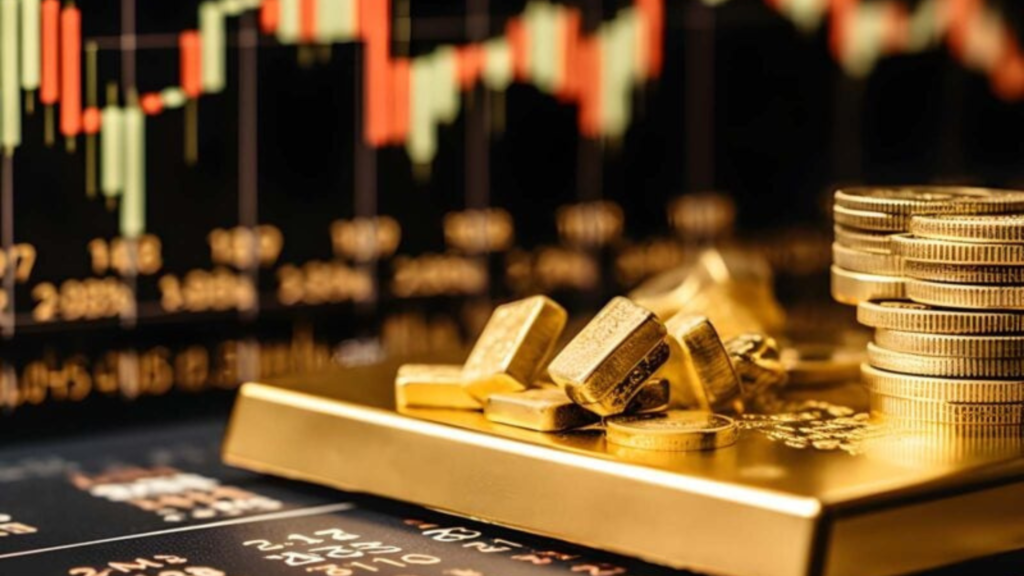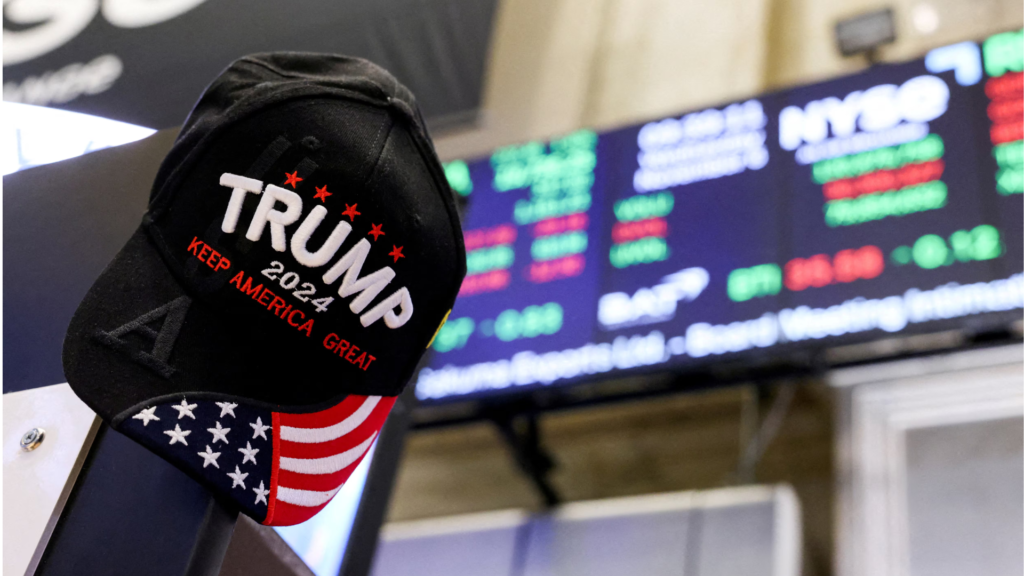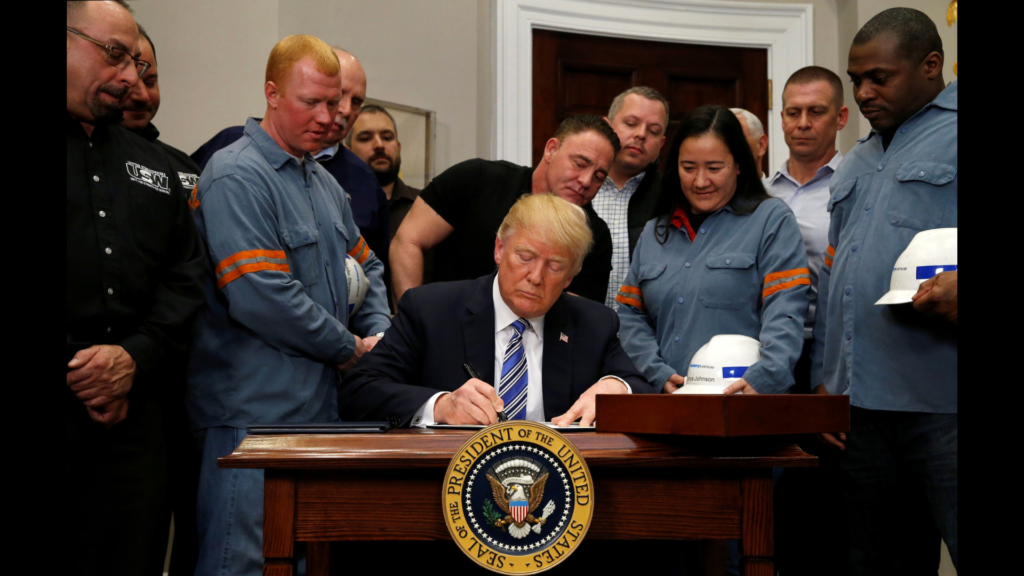Since the win of Donald Trump in the U.S. 2024 presidential election, gold prices have declined significantly and are close to the lowest they have been in nearly two months. This has led investors to turn to equities and cryptocurrencies. Gold, once regarded as a ‘safe haven’ investment during periods of economic risk aversion, has fallen out of favor for a while due to revived market confidence.
This is due to Trump’s proposed policy changes and his pro-crypto and pro-business stance, as they have given confidence to the U.S. stock market and renewed interest in cryptocurrencies. As Trump’s victory continues to strengthen the U.S. dollar and an energized equities market, the outlook for gold may seem uncertain in the short term. Still, questions about debt, monetary authorities’ actions, and future budget risks open the door to gold to regain its haven status.
Gold Prices Dip Amid Strengthening Dollar Post-Trump Victory
One of the key factors that has led to the recent dip in gold prices has been the strengthening dollar index. After Trump’s victory, the dollar strengthened against the major world currencies, and in comparison with them, the price of gold dropped. This is because gold, priced in U.S. dollars, becomes expensive to buyers who hold other currencies when the dollar appreciates. Consequently, demand may be weaker in the case of the foreign countries, and hence the price of gold may drop to some level.
Since last week’s election results, the current prices of the yellow metal have fallen by over 7% to $2,559.2 per ounce. Gold futures on the New York Mercantile Exchange were trading at $2,567.3. Since Trump’s victory, gold has declined in six of the seven sessions following a series of record-breaking milestones for bullion over the past year.

The dollar has strengthened against other currencies because global markets expect Trump’s America to restore the economy’s vigor and confidence with pro-growth policies, deregulation, and lowering taxes. In changing this sentiment, investors move out of precious metals and into assets that would be the beneficiaries of economic expansion, putting pressure on gold prices.
ALSO READ: Why Gold Has Been Outperforming Most Other Assets This Year
Analysts Predict Short-Term Pause in Bull Market for Gold and Silver
Some analysts are convinced that the recent decline in gold is temporary and not going to be a long-term decline, as it is only a response to Trump’s victory. Over the past few years, gold has performed well due to worries about world economy stability, inflation and political instabilities. However, with the Donald Trump election victory, optimism about economic growth has dampened these concerns and caused a downturn in the bull market for gold and silver.
In the previous years, gold was used as an inflation and market risk hedge, so it is a good investment during periods of market uncertainty. However, after Trump’s victory, investors are moving temporarily to equities since they offer better returns. That is why, as this enthusiasm fades, many experts expect the gold market to rebound in the event of renewed economic or geopolitical risks.
U.S. Equities and Cryptocurrencies Rally on Trump’s Pro-Business Policies
Trump’s has brought new energy into the U.S. equities market, which is now buoyed by expectations of favorable business policies. The pro-business policies that Trump has promised, including the deregulation and possibly tax reforms, have provided a fertile environment for growth sectors like manufacturing and technology.
Hence, a large number of investors are moving their funds from gold and other safe-haven assets into equities, which are seen as more likely to benefit from Trump’s proposed economic agenda.

Besides equities, there has been a rise in cryptocurrencies as well, and investors are now considering digital assets like Bitcoin as an alternative investment to traditional stocks. Bitcoin briefly trading at new highs right after Trump’s victory is another example of this trend since crypto assets are becoming popular among investors looking for both portfolio diversification and high returns.
Market Optimism Drives Equities to New Highs, Eclipsing Gold’s Appeal
As equities continue to rise after Trump’s election victory, traditional assets like gold have become unattractive to investors. Major U.S. stock indices, including the S&P 500 and the Dow Jones Industrial Average, have risen significantly due to Trump’s policies on boosting economic growth.
Investor perception that a Trump-led government could usher in a period of prosperity sparked the ensuing U.S. equities rally, increasing interest in equities over gold.
Investors typically buy gold during volatile markets, but due to current positive market sentiment, demand for gold has temporarily decreased. A large number of investors are willing to sacrifice returns in the form of capital preservation and focus on high growth potential because Trump’s policies will ensure strong economic results.
ALSO READ: Bitcoin Surges Past $82,000 Amid Trump-Driven Crypto Rally, Is $100K Next?
Speculation Around Trump’s Tariff Plans and Global Economic Impact
Trump’s previous government imposed high tariffs, raising expectations about what his trade policies will be like in the next administration. If he decides to impose tariffs on imports, the global economic situation might come under pressure and lead to inflation, thus driving investors back to gold as a hedge.

While his policies could help domestic industries, they might put pressure on international relations in trade, making the economy a little more complicated. In such a situation, there is a likelihood that gold demand could rise again as investor’s turbulence increases across the world. For now, the market is still positive; however, the issue of tariffs and their influence on global trade is still open.
Central Bank Gold Demand Expected to Stay Strong Amid Fiscal Concerns
Despite the drop in gold prices, central banks worldwide are expected to maintain strong demand for gold as a means of diversifying their reserves and safeguarding against fiscal uncertainties. The role of central banks in the gold market is a critical factor, as they often buy gold as an insurance tool against currency volatility and economic shocks.
While the individual investor may turn his attention to equities and cryptocurrencies, central banks will continue to buy gold because of its intrinsic value. Fiscal concerns, debt levels, and inflationary pressures all contribute to the importance of maintaining gold reserves, suggesting that central banks may continue buying gold even as prices dip in the short term.
Regardless, Trump’s return to the White House may have sparked interest in digital assets, with cryptocurrencies surge as investors seek high-growth alternatives to traditional assets. However, as fiscal worries continue and the potential for economic uncertainty remains, gold prices might experience a comeback, particularly if debt levels and inflation remain prominent issues.
The balance between equities, digital currencies, and precious metals is shifting, but each asset class will probably continue to retain its unique role as investors navigate the implications of Trump’s policies and global market dynamics.

